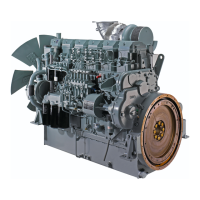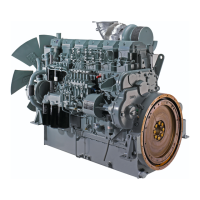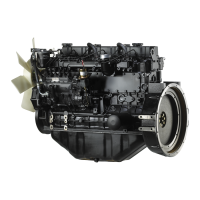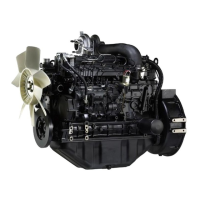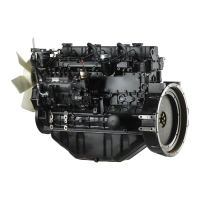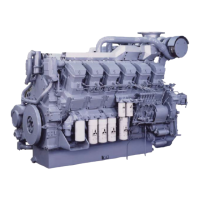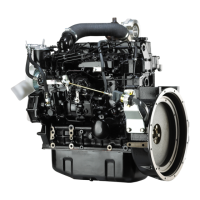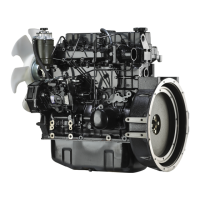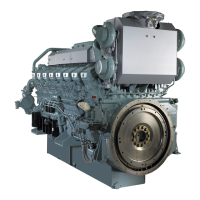1-1
Chapter 1 BASIC SAFETY PRECAUTIONS
Fire and explosions
Keep flames away
Do not use flames near the engine (in
the engine room). Fuel vapor or other
gas can catch fire and produce dan-
gerous situations.
Wipe off spilled fuel, oil and LLC
immediately and thoroughly. Spilled fuel, oil and LLC
may ignite and cause a fire.
Store fuel and engine oil in a well-ventilated area.
Make sure that the caps of fuel and engine oil contain-
ers are tightly closed.
Keep engine surrounding area
tidy and clean
Do not leave combustible or explosive materials, such
as fuel, engine oil and LLC, near the engine. Such
substances can cause fire or explosion.
Remove dust, dirt and other foreign materials accu-
mulated on the engine and surrounding parts thor-
oughly. Such materials can cause fire or the engine to
overheat. In particular, clean the top surface of the
battery thoroughly. Dust can cause a short-circuit.
Always operate the engine at a position at least 1 m
[3.28 ft.] away from buildings and other equipment to
prevent possible fire caused by engine heat.
Ventilation of engine room
Always provide adequate ventilation in the engine
room. Insufficient air in the room can cause an
increase in the engine temperature and a decrease in
the output power and performance. It is highly recom-
mended to calculate the required amount of air supply
to the engine and install an adequate ventilation sys-
tem before installing the engine.
Do not open side cover until
engine cools
Do not attempt to open the side cover of the crank-
case before the engine cools down. Wait at least 10
minutes after stopping the engine.
Opening the cover when the engine is hot allows fresh
air to flow into the crankcase, which can cause oil mist
to ignite and explode.
Care for fuel, oil and exhaust
gas leakage
If any fuel, oil or exhaust gas leakage is found, imme-
diately take corrective measures to stop it.
Such leakages, if left uncorrected, can cause fuel or
engine oil to reach hot engine surfaces or hot exhaust
gas to contact flammable materials, possibly leading
to personal injury and/or damage to equipment.
Use explosion-proof lighting
apparatus
When inspecting fuel, engine oil, coolant, battery elec-
trolyte, etc., use a flameproof light. An ordinary light-
ing apparatus may ignite gas and cause it to explode.
Prevent electrical wires from
short-circuiting
Avoid inspecting or servicing the electrical system with
the ground cable connected to the battery. Otherwise,
a fire could result from short-circuiting. Be sure to dis-
connect the battery cable from the negative (-) termi-
nal before beginning with the work procedure.
Short-circuits, possibly resulting in fire, may be
caused by a loose terminal or damaged cable/wire.
Inspect the terminals, cables and wires, and repair or
replace the faulty parts before beginning with the ser-
vice procedure.
Keep fire extinguishers and
first-aid kit handy
Keep fire extinguishers handy, and
become familiar with their usage.
Keep a first-aid kit at the designated
place where it is easily accessible by
anyone at any time.
Establish response procedures to follow in the event
of fire or accident. Provide an emergency evacuation
route and contact points and means of communication
in case of emergency.
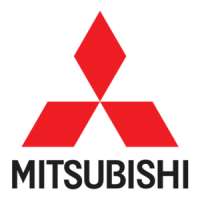
